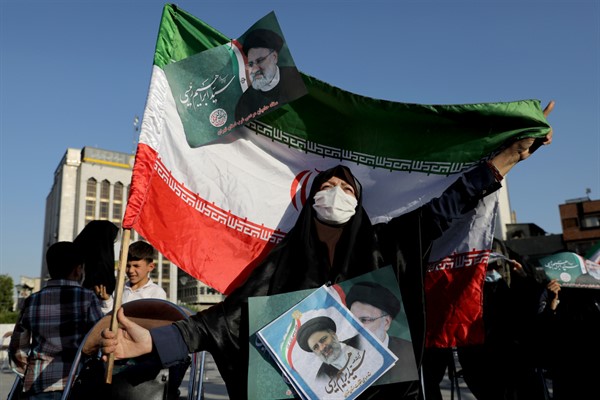Iranians will go to the polls this Friday to choose the successor to centrist President Hassan Rouhani, who is winding down his second four-year term and cannot run for reelection. The polls will take place in an atmosphere of widespread public apathy, as voters choose from a list of presidential candidates that has been heavily vetted beforehand. Of the seven contenders approved last month by the Guardian Council—an oversight body of 12 clerics who are closely aligned with Supreme Leader Ali Khamenei—five are regarded as hard-liners, while the other two are uncharismatic moderates with relatively low profiles. Ebrahim Raisi, a hard-line jurist, is widely seen as the front-runner.
The reformists, one of the main political blocs in the country’s fluid factional landscape, saw all of their preferred candidates excluded, raising the very real prospect that they could be shut out from the key participatory instrument in Iran’s government for at least the next four years.
The reformists hadn’t counted on the deck being so stacked against them. In a bid to avoid the bitter experience of the 2005 elections, in which multiple candidates split the reformist vote and paved the way to victory for firebrand conservative Mahmoud Ahmadinejad, they sought to create a transparent, democratic consensus-building body that could resolve internal schisms. To that end, the Reform Front, a political alliance comprising dozens of reformist parties and politicians, was formed in January.

